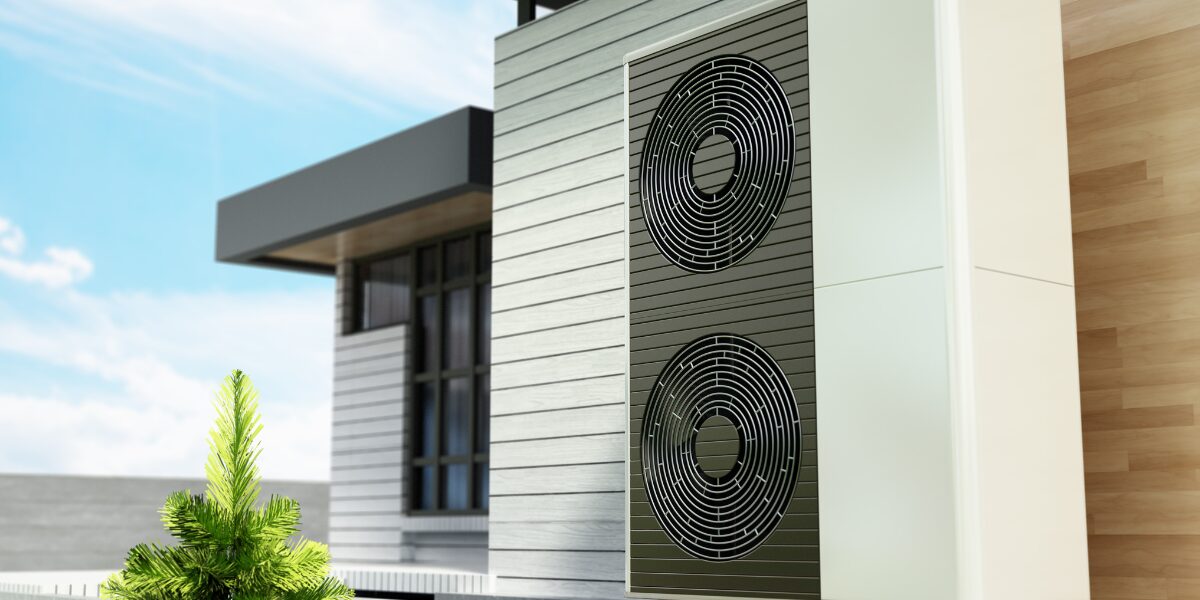Do Heat Pumps Cause A Lot Of Noise?

Worried about noise pollution? Let’s crank up the volume on the heat pump debate! You’ve heard the buzz about their energy efficiency, but what about the actual buzz?
Are heat pumps silent heroes or noisy neighbours? Brace yourself as we cut through the chatter and get to the heart of the matter.
Whether you’re a light sleeper or just value peace and quiet, we’re about to uncover the truth about heat pump noise. Get ready to tune in to the sounds (or lack thereof) of modern heating technology.
Average heat pump noise levels
Most people don’t know that the concept of heat pumps was developed during the 1800s, but they didn’t gain much traction until the 1970s.
Unfortunately, heat pumps weren’t considered a viable option for households until recently due to a lack of technology and high noise levels.
While older heat pumps could reach noise levels that exceeded 70 dB, modern alternatives have advanced noise reduction features.
How quiet are today’s heat pumps?
Today’s heat pumps typically emit noise levels between 40 and 60 decibels, significantly quieter than older models.
A report from Green Energy News highlights some common misconceptions about noise levels and reveals that modern heat pumps are quieter than many other appliances.
Heat pumps vs. boilers: Which is quieter?
It’s a question many people have, but most experts agree that boilers and heat pumps have similar noise outputs. While boilers are always inside the home, the external unit of a heat pump is outside, so you might be less likely to notice any noise.
Households with a traditional gas boiler deal with more noise, as these boilers can emit around 70 dB.
Heat pump noise levels by type
Homeowners can choose between three heat pump types, each with unique benefits. The right solution for your needs depends on what your property can accommodate.
Ground-source heat pumps
Ground-source heat pumps are popular solutions for people with large outdoor spaces. They’re able to generate consistent heating and cooling as the earth’s temperatures remain stable.
Elaborate pipe systems transmit energy from the source to your home, providing heat or cold air. Installing a ground-source heat pump also means you can look forward to low noise levels, as they typically emit up to 42 dB.
The biggest drawback of GSHPs is the installation process. If you don’t have a large garden, the service will need to install vertical boreholes, which can be more expensive.
Water-source heat pumps
If you have a pond, river or lake nearby, installing a water-source heat pump will give you a consistent energy supply. Unfortunately, accessibility issues mean many households can’t access these pumps, as they collect energy from the water and convert it to heat.
A WSHP is a bit noisier than ground-source pumps, with most reaching 50 dB. The main issue is that not having a water source nearby means you could spend a lot more on the installation process.
Air-source heat pumps
Air-source heat pumps are the most common option in the UK due to their compatibility with houses and flats. They’re installed on your building’s exterior and collect energy from the air, converting it into heat.
While air-source heat pumps are the loudest option, they usually don’t exceed 60 decibels. Unlike the ground or water, the air’s temperature isn’t always consistent, which means the pump might need to work harder.
Will my heat pump disturb the neighbours?
If you’re installing a heat pump in a residential area, it’s natural to be concerned about whether it will disturb your neighbours. Modern air-source heat pumps have components that reduce excess noise, but most people won’t notice them.
Even in well-built-up areas, most people compare heat pump noises to a fridge, so the average neighbour won’t notice it.
A professional heat pump installation service will also evaluate your property and other houses to find a spot that causes the least disruptions.
How noisy are heat pumps in the winter?
A key concern among homeowners in the UK is whether heat pumps will cause excess noise in the winter. Yes, air-source heat pumps work harder when it’s cold, but that doesn’t mean they become noise pollution issues.
Countries in Scandinavia are huge adopters of heat pumps, and the temperatures can drop to -9℃. When compared to the UK’s average winter temperature of 4.12℃, we can safely say that air-source heat pumps won’t cause severe disturbances.
How to reduce heat pump noise
Heat pumps are paving the way for a more sustainable future, and combining them with solar panels could result in complete energy independence. Residential and commercial buildings can benefit from installation—but are there ways to reduce excess noise?
Here are some great tips for reducing heat pump noise levels and enjoying consistent heating or cooling for your property:
Choose professionalism
Heat pumps are a relatively new concept in the UK and should only be installed by a professional service.
Boiler companies might not understand how to work with renewable energy solutions, but a specialist heat pump installation team will ensure the pump offers a seamless performance.
Select the right location
Finding an optimal place for your heat pump will ensure that it doesn’t cause issues for neighbours. Your installation company will assess the right location and ensure there’s adequate ventilation.
There are some ways to block excess noise by creating a barrier, but you should always seek specialist advice.
Prioritise proper maintenance
Heat pumps are designed to last for years but still require regular maintenance. As with boilers, you’ll need to check the pump for issues and ensure there’s no debris accumulation.
Your installation service might offer maintenance checks, which can save you time and money. It also prevents the need for expensive repairs or replacements.
Final thoughts
Heat pumps have come a long way since the 1970s, and we can expect future advances that will reduce noise levels even further. Whether you choose an air-source heat pump or prefer a quieter solution, remember that professional installation is everything.
Opting for a reputable company with experience working with heat pumps means enjoying a long-term heating and cooling solution.
Please get in touch with Geowarmth today if you’d like to discuss your options or have any questions about heat pumps. Our experts are ready to help you live greener and enjoy lower energy bills.


